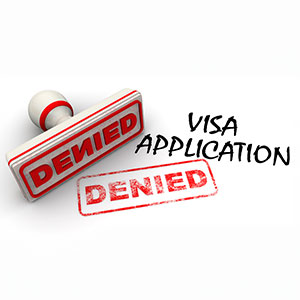
P visas are a temporary nonimmigrant employment visa that is granted to foreign athletes and entertainers. It is also available for spouses and children and support personnel. P visas are a useful tool for athletes and entertainers who want to play or perform in the United States. However, even if you are an athlete or an entertainer, a P visa is not guaranteed. There are some common reasons for a P visa denial. Insufficient Documentation In order to qualify for a P visa, an applicant must demonstrate that they are an internationally recognized athlete or an entertainer or artist recognized for excellence in their field. In order to ensure that your P visa application is complete, you must provide evidence that you meet these qualifications. If the evidence and documentation presented is insufficient to meet the standard, then your P visa application may be denied. Failed To Meet The Eligibility Requirements For The P Visa Qualifying for a P visa requires that you are an…Read More

When you file an application for residency in the United States under the Violence Against Women Act (VAWA), you must provide evidence establishing that you meet the eligibility requirements. There are a number of different types of evidence that can help your application. Personal Declaration You must submit a detailed declaration describing your relationship with the abuser. You must also include other details regarding your eligibility. The declaration should include details about how you met the abuser and how the relationship progressed. It may be painful, but details about the abuse should also be included. You should also describe why you are a person of good moral character. Evidence Of Good Moral Character You should include police clearance records from any place you lived for more than six months in the past three years. They show that you have not been convicted of a crime and help demonstrate that you are a person of good moral character. You can also include declarations from friends, family,…Read More

There are many ways to become a citizen or obtain a green card in the United States. One of these ways is to invest money in U.S. projects. The EB-5 program allows immigrants who invest $500,000 or more in U.S. projects to obtain green cards as long as these investments created ten or more jobs. This has become a very popular program in recent years and has resulted in millions of dollars of investment in the United States. It is also a helpful tool for U.S. developers and businesses. What Is The EB-5 Visa Program? The EB-5 visa, also known as the golden visa, provides green cards for individuals who invest $500,000 or more, depending on the location, in projects in the United States. In order to qualify for an EB-5, the investment must result in ten or more jobs being created. The jobs created must last for at least two (2) years. Those who invest are able to use the program to obtain green cards for…Read More

An O1 visa is available for those individuals who have extraordinary ability and have demonstrated excellence in their field. Individuals who qualify for O1 visas can come to the United States with their spouses and children. Spouses and children are issued O3 visas. Eligibility For O3 Visa In order to qualify for an O3 visa, one must prove that they are the spouse of an O1 visa holder and must provide sufficient evidence to prove this fact. In addition, you must not be inadmissible based on your criminal history or on health grounds. There are two filing options available for an O3 visa based on whether you are in the United States or in another country. Application Process If you are already in the United States, you can file your O3 petition along with your spouse’s O1 visa petition. The petition will be filed by the employer sponsoring your spouse’s petition. If you are already on a valid independent nonimmigrant status, you can file to…Read More

In some visa and green card applications, an in-person interview with a USCIS adjudicator is a required step in the process. An applicant is allowed to bring an attorney to this interview. A frequent question that is asked by applicants is whether or not they should bring an attorney to their immigration interview. There are some important reasons why it might be a wise idea to bring an attorney. Help Explaining Facts And Making Legal Arguments There may be times during the interview when a question by the adjudicator or an answer by the applicant requires some clarification. An attorney can help make sure that everyone understands each other and is on the same page. In addition, if a case has a factual or legal issue, the attorney can help explain the facts and make the legal arguments required to clarify the situation on behalf of the applicant. Avoid Disaster Sometimes an adjudicator comes into an interview already determined to deny the application. They may…Read More
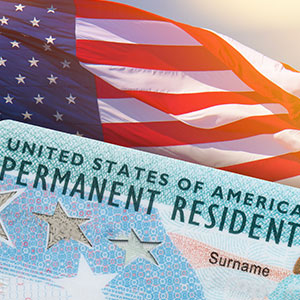
An O-1 visa is available to foreign nationals who possess extraordinary ability in sciences, education, business, or athletics or who have demonstrated extraordinary achievement in the motion picture or television industry or the arts. A green card is available for individuals with the same achievements to obtain permanent residence in the United States. However, the evidentiary requirements to establish “extraordinary ability” for an O-1 visa are different from those required for an EB1-A green card. Some people with an O-1 visa may reach a level in their careers where they can qualify for an EB1-A green card. In those instances, they may decide to “upgrade” to a green card based on their eligibility. EB1-A green cards are reserved for a small percentage of individuals at the very top of their fields. Additional Qualifications The evidence used to demonstrate “extraordinary ability” in an EB1-A green card application is similar to what is used for an O-1 visa application. However, there are some differences. USCIS evaluates green…Read More

Compared to most nonimmigrant visas, working on an O-1 visa is fairly flexible. However, there are some work restrictions attached to this type of visa, and it is important to understand these restrictions. Sponsorship Of An O-1 Visa Many people assume that similar to an EB-1 green card, they can sponsor their own O-1 visa application because both types of applications are based on extraordinary abilities. However, the law states that an O-1 visa application must be sponsored by an employer or an O-1 visa agent. An O-1 visa agent is someone who professionally represents you and your employer. There are a few exceptions to this requirement. Changing Employers Holders of O-1 visas may change employers or work for multiple employers. However, there are some restrictions on this practice. If you wish to change employers, your new employer must submit a new I-129 to the USCIS. If your O-1 petition was submitted by an agent, then an amended petition with evidence from your new employer…Read More
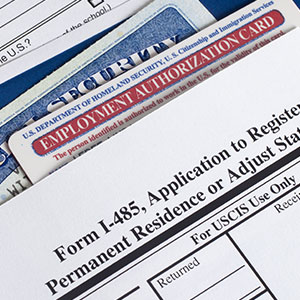
In a recently released Unified Agenda for the Department of Homeland Security, the Trump administration proposed forthcoming rules. These new immigration regulations, if enacted, could have a profound effect on H1-B and L-1 visa holders. H1-B Visas Under more restrictive Trump administration policies, the denial rates for H1-B visas have increased significantly. According to an analysis by the National Foundation for American Policy, the denial rates have gone from 6% to 24% in the last four years. Further regulations could lead to increased denials and become a burden on employers and highly skilled foreign workers. The proposed H1-B rule would revise the definitions of specialty occupation, employment, and employer-employee relationship. DHS also plans to propose additional requirements that would affect the wages paid to H1-B visa holders. It is believed that the Trump administration is looking towards pushing the boundaries and making long-term structural changes to H1-B visas. A new regulation that would revise the definition of employment and employer-employee relationship could affect employers who place workers at client…Read More
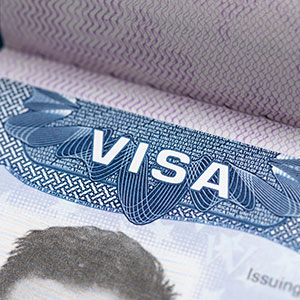
Premium Processing Service provides expedited processing for certain employment-based petitions and applications. When you use Premium Processing Service, the USCIS will issue a decision on your petition or application within 15 calendar days, or your fees are returned. The 15 days begin when the USCIS receives the relevant petition or application along with Request for Premium Processing Form. You file for premium processing if you are applying for the following visas: E-1 or E-2 Treaty Investor H1-B. H2-B, and H3 employee L-1 intracompany transferee O-1 and O-2 individuals with extraordinary ability P athletes or entertainers TN NAFTA professionals The fee for Premium Processing Service is $1,410 and cannot be waived. You can file your request for Premium Processing Service with your original petition or request it later once you decide to expedite the process. It should be noted that while a petition is guaranteed to be processed within 15 calendar days, it does not necessarily mean the petition will be approved or denied within 15…Read More
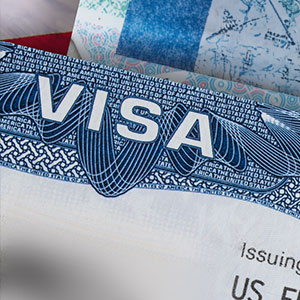
In recent years athletes from around the world have come to the United States to participate in eSports tournaments. This came after a 2013 decision when USCIS approved its first P-1 visa for an eSports athlete to participate in a U.S. competition. This demonstrated that USCIS was no longer resistant to considering an eSports gamer an athlete and opened the door to thousands of other eSports athletes. This has helped to broaden the U.S.’s impact on the eSports market. P-1A Visas For eSports Athletes P-1A visas are available to internationally recognized athletes and teams that are coming to the United States to participate in a specific competition. P-1A visas require a high level of achievement in your field. Applicants for P-1A visas mist show that they have a degree of skill and recognition that goes substantially beyond the ordinary. This can be demonstrated by showing renowned achievements and that you are well known in multiple countries. Each individual application will be evaluated on its own…Read More